
Leonidas Platanias, MD, PhD
Director, Lurie Cancer Center
Dear Friends and Colleagues,
During the past year, we all experienced COVID-19's dramatic impact on cancer research and patient care. Through the unwavering dedication of our extraordinary clinicians, scientists, and staff we were able to respond rapidly and thoughtfully — providing our patients with the highest level of care in the safest possible environment while protecting the health of our community.
Lurie Cancer Center kept moving onward and upward. Despite the challenges, our teams found innovative ways to advance critical cancer research and effectively provide vital education, programs and services. In addition, insights from our cancer-related discoveries are contributing to the fight against COVID-19.
Our cancer program at Northwestern Memorial Hospital was ranked #8 in the nation by U.S. News & World Report in 2020-2021 and recognized once again as the top cancer program in Illinois and Chicago. As Northwestern Medicine continues to grow, Lurie Cancer Center will expand our efforts to increase collaboration and maximize impact across the evolving health system. Fueled by philanthropy, Lurie Cancer Center’s physicians and scientists are united in their determination to translate high-impact research findings into new possibilities for patients with cancer.


On March 11, 2020, COVID-19 was declared a pandemic by the World Health Organization. As the disease spread quickly around the world, nearly every aspect of medicine was radically altered. Especially impacted by this dramatic shift were cancer research and patient care.
For the Lurie Cancer Center, a combination of time and immense dedication has resulted in a more comprehensive understanding of how the disease affects cancer patients and, in turn, the development of robust testing and treatment protocols. "When patients come here, we are prepared, and we have confidence that we have the safest possible environment for them, and for everyone else who's in the center," said Leonidas Platanias, MD, PhD, director of the Lurie Cancer Center and the Jesse, Sara, Andrew, Abigail, Benjamin and Elizabeth Lurie Professor of Oncology.
In response to the threat of COVID-19 on cancer, the Lurie Cancer center offered multiple competitive grants to support various COVID-19 and cancer-related research efforts. The cancer center has also been involved in a joint effort with the National Cancer Institute (NCI) and the National Institute of Allergy and Infectious Diseases (NIAID) to develop a COVID-19 antibody test.
"What gives me hope is seeing the dedication and persistence of all the healthcare workers — from doctors to nurses to social workers — who risked their own lives to care for our patients," adds Dr. Platanias, "and we're now in a better place because of them."
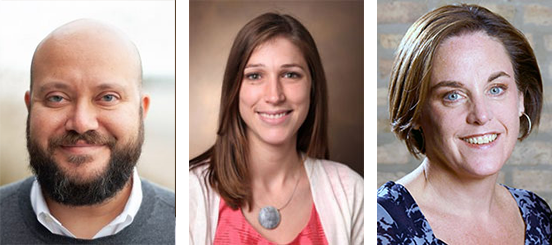
When COVID-19 began to sweep the globe, oncologists and scientists from more than 100 institutions came together within weeks to form the COVID-19 & Cancer Consortium (CCC19), a combined patient data registry. Firas Wehbe, MD, PhD; Alicia Morgans, MD; and Mary Mulcahy, MD; were co-authors of a study published in The Lancet to understand the impact of the virus on outcomes in patients with cancer, including the risks and benefits of continuing cancer treatment.
 As the pandemic rolled into summer, more was learned about how exactly COVID-19 impacts cancer patients. A study published in the journal Blood found that patients with chronic lymphocytic leukemia (CLL) who were diagnosed with COVID-19 were at a higher risk for developing complications. "Such data is important to guide clinicians to better manage CLL patients through this evolving pandemic," said co-author, Shuo Ma, MD.
As the pandemic rolled into summer, more was learned about how exactly COVID-19 impacts cancer patients. A study published in the journal Blood found that patients with chronic lymphocytic leukemia (CLL) who were diagnosed with COVID-19 were at a higher risk for developing complications. "Such data is important to guide clinicians to better manage CLL patients through this evolving pandemic," said co-author, Shuo Ma, MD.

To achieve the greatest impact, Lurie Cancer Center director, Leonidas Platanias, MD, PhD and a world-class leadership team draw from and collaborate with some of the brightest minds in cancer research. Every day, our physicians and scientists are transforming how we think about cancer.
The caliber of their efforts is reflected in Lurie Cancer Center's status as a National Cancer Center (NCI)–designated Comprehensive Cancer Center. Collaborative research opportunities span 34 academic departments and divisions across four schools at Northwestern. In addition to our eight basic, clinical, and population sciences research programs, Lurie Cancer Center supports a diverse range of innovative research hubs and initiatives focused on exploring new ways to bridge these scientific areas, including the following:
The following data helps to illustrate the impact of our efforts against cancer.
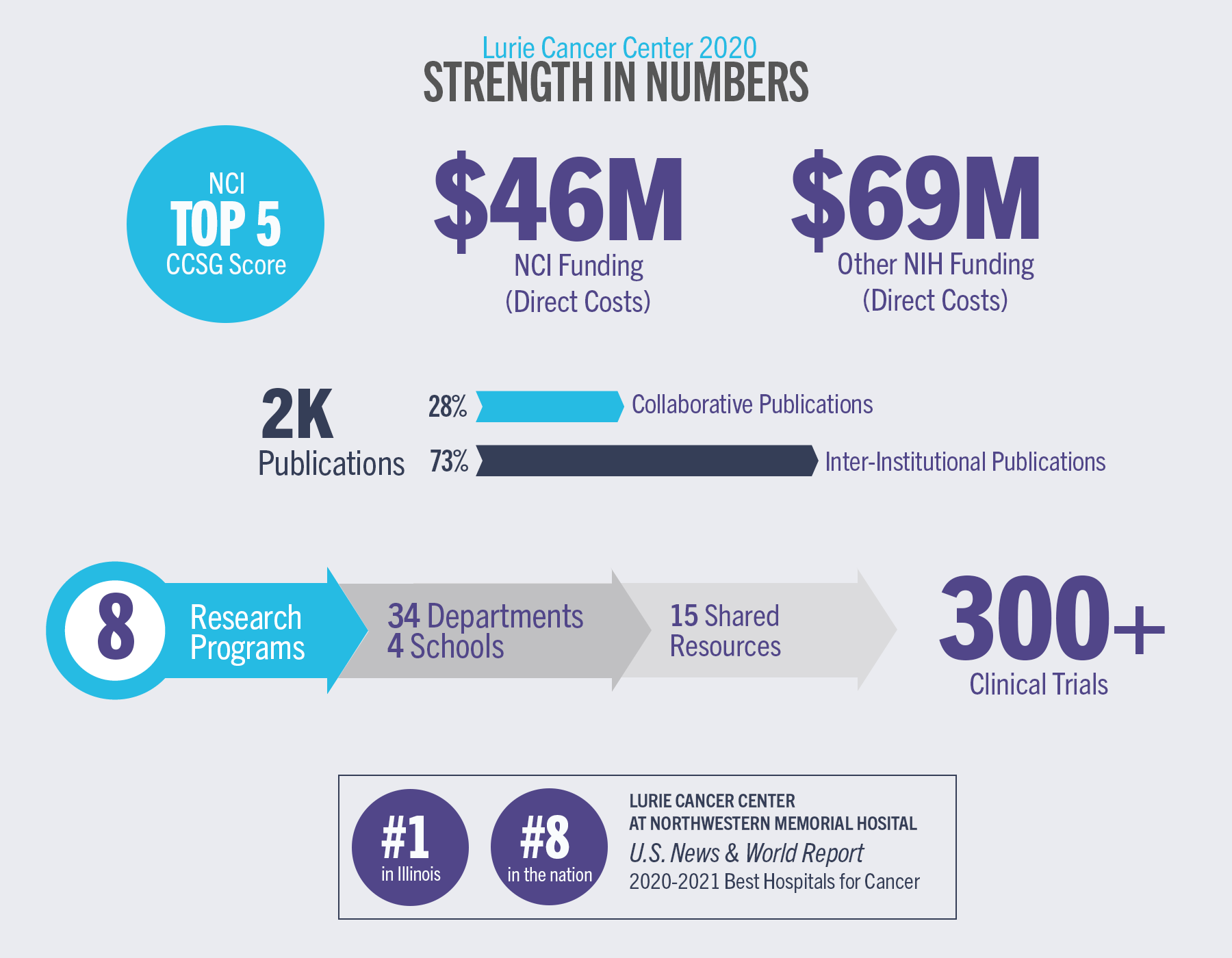
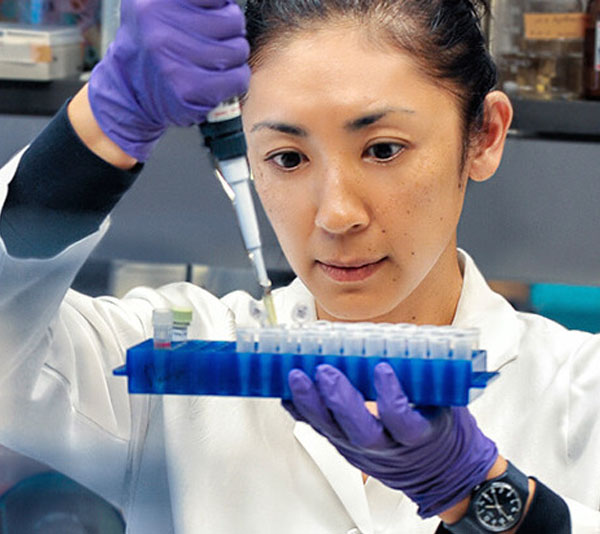
The Lurie Cancer Center provides scientific leadership in the development and conduct of NCI–funded clinical research within the National Clinical Trials Network (NCTN). Based on our demonstrated expertise, our members serve as chairs and co-chairs of the NCTN steering committees committed to setting strategic priorities and increasing collaboration at an early stage of clinical trial development.
"At Northwestern, we all provide exceptional care. But I always say that exceptional care will never be good enough if we don't have a cure or impactful treatments for our patients," says Maha Hussain, MD, Deputy Director of the Lurie Cancer Center. "That's why my passion is research. Research is what will cure cancer."
The Clinical Trials Office provides a centralized resource to conduct and coordinate Phase I through Phase III clinical trials. Lurie Cancer Center has more than 300 interventional clinical trials investigating a full spectrum of diagnostic and treatment strategies.
Our investigators benefit from access to strong infrastructure for interdisciplinary programs and initiatives, including 15 shared resources and facilities that foster basic, clinical and population science research programs. A new, developing Immunotherapy Assessment Core provides cutting-edge technologies and expert support for clinical and translational studies.
Designed to catalyze interdisciplinary translational research, the goal of our Translational Bridge Program is to propel basic science research into clinical trials and educate a new generation of translational investigators. Three new Bridge Award initiatives are expanding our efforts.
This past year, Lurie Cancer Center scientists worked relentlessly to address some of oncology’s most urgent questions. Below are just some of their transformative discoveries that are driving breakthroughs and changing lives.
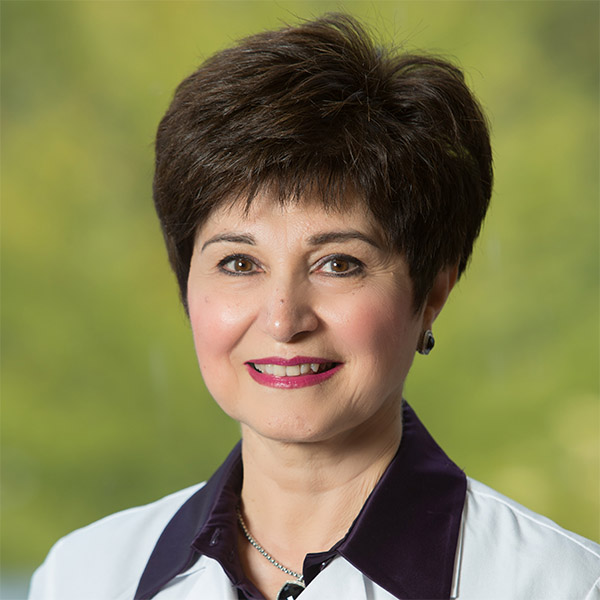
Prostate cancer has lagged behind other solid tumors with regard to molecularly targeted therapy and precision medicine, but that changed in 2020. Practice-changing findings from an international phase III clinical trial co-led by Maha Hussain, MD, deputy director of the Lurie Cancer Center, resulted in FDA approval of olaparib for the treatment of patients with metastatic, hormone-resistant prostate cancer.
“Our results show genetically targeted treatment can extend the lives of patients with advanced prostate cancer that has progressed after several types of therapy,” said Dr. Hussain. “We are now entering a new era of personalized care and precision medicine for metastatic prostate cancer.”
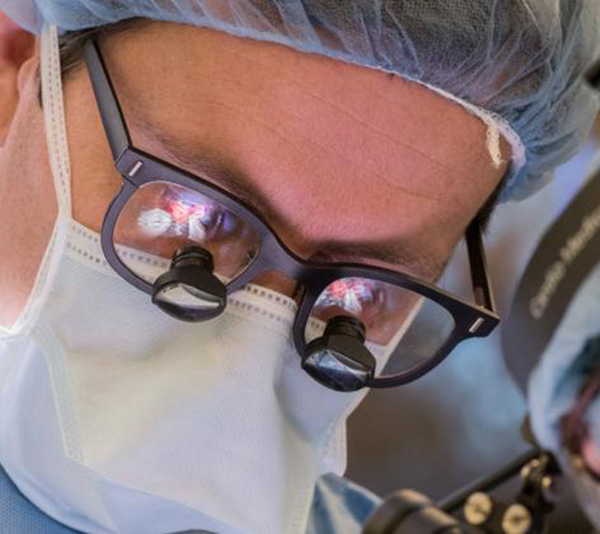
A new combination therapy targeting breast cancer tumors in the brain dramatically decreased tumor size, according to a study published in Science Translational Medicine. “The new combination therapy we identified can cross the blood-brain barrier,” said Maciej Lesniak, MD, lead author of a new study published in Science Translational Medicine. “The therapy also targets brain metastases and significantly improves survival.”
“The findings of our work set the stage for a clinical trial, whereby patients with breast cancer brain metastases can be treated with the combination of these two drugs,” said Lesniak, who is director of the Neuro-Oncology Program at the Lurie Cancer Center.
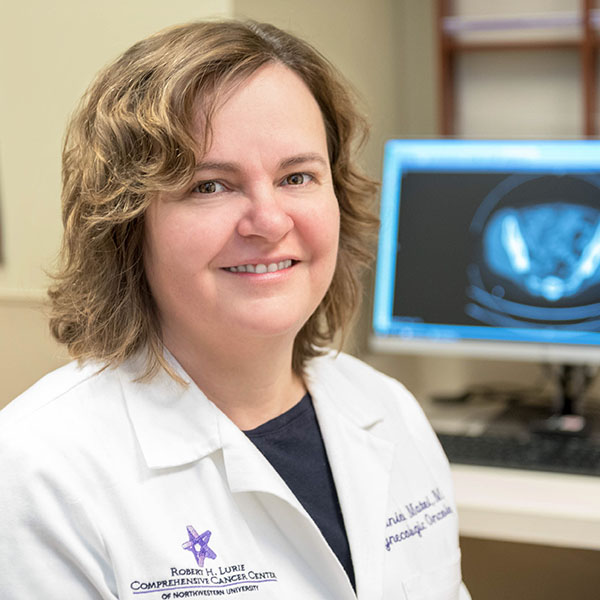
Daniela Matei, MD, received top honors from the Clinical Research Forum as part of its 2020 Top Ten Clinical Research Achievement Awards program for her surprising finding that radiation plus chemotherapy does not improve recurrence-free survival rates in endometrial cancer. Results from the phase III clinical trial, published in the New England Journal of Medicine, could change the way women are treated for later stage endometrial cancer.
Listen to the podcast on this study
Read more about the Clinical Research Achievement Awards
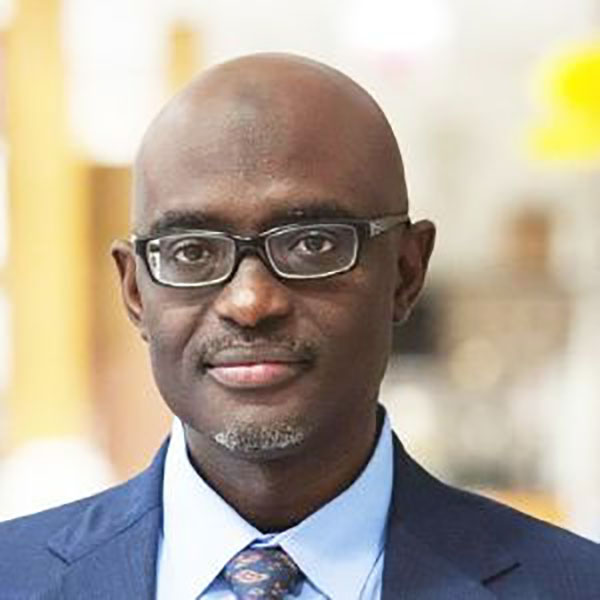
Scientists have discovered a new target for slowing treatment-resistant prostate cancer, according to a recent study published in Nature Communications. Inhibiting an epigenetic regulator called DOT1L reduced the growth of human prostate tumor cells while sparing healthy cells, said Sarki Abdulkadir, MD, PhD, senior author of the study and a principal investigator of the Specialized Program of Research Excellence (SPORE) in prostate cancer at the Lurie Cancer Center.
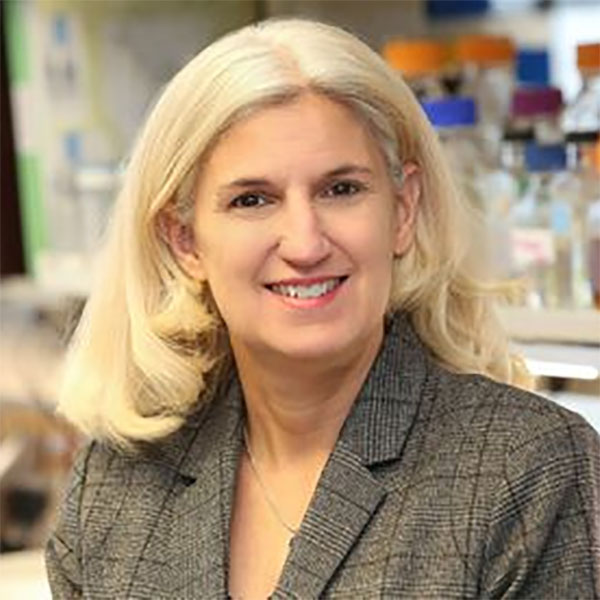
A novel compound using diphtheria toxin to attack a signaling pathway implicated in as many as 50 percent of cancers slowed tumor growth, according to Karla Satchell, PhD, co-senior author of a recent study published in Proceedings of the National Academy of the Sciences (PNAS). “If the binding subunit can be modified to traffic only to cancer cells, this chimeric toxin could be a seek and destroy weapon against cancer,” said Satchell.

Lurie Cancer Center investigators have discovered the growth of cancerous tumors requires the activation of a specific biochemical process within the mitochondria of tumor cells, showing potential as a new target for cancer therapy, according to Navdeep Chandel, PhD, senior author of the study published in Nature and co-leader of the Membranes, Organelles & Metabolism (MOM) program at the Lurie Cancer Center.
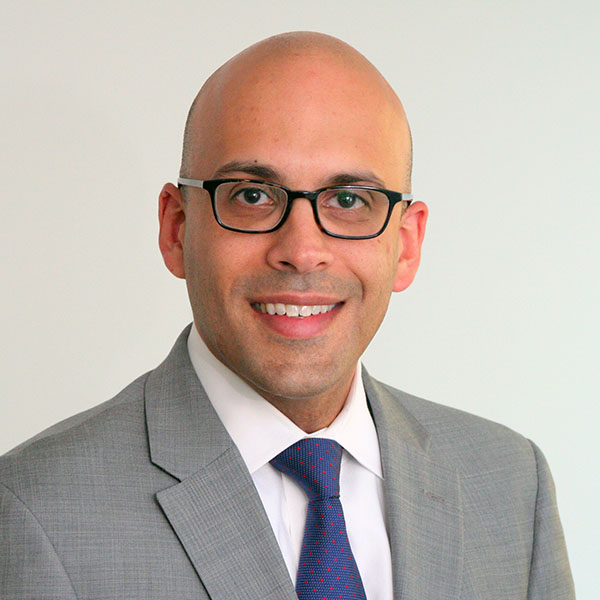
Patients of more technically skilled surgeons have better long-term survival after surgery for the treatment of colon cancer, reports a new study published in JAMA Oncology and presented virtually at the Commission on Cancer Annual Meeting. "This is pretty mind-blowing," said lead author, Karl Bilimoria, MD. "It may seem common sense in some ways, but we didn't realize the magnitude of the effect."
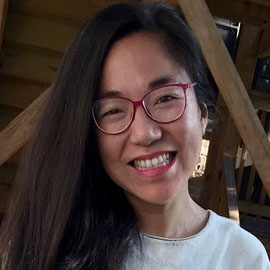
Lurie Cancer Center investigators have developed a novel vaccine that utilizes a specialized group of B-cells to promote anti-tumor immunity against glioblastoma. The vaccine, which is still in pre-clinical stages, is the first of its kind and may be an alternative to currently available immunotherapeutic approaches to treat the fatal brain cancer, according to Catalina Lee Chang, PhD, first author of the study published in the Journal of Experimental Medicine.

A new artificial intelligence (AI) model predicts breast cancer in mammograms more accurately than radiologists, reducing false positives and false negatives, according to an international study published in Nature. "This is a huge advance in the potential for early cancer detection," said study co-author Mozziyar Etemadi, MD, PhD. "We hope this will ultimately save a lot of lives."
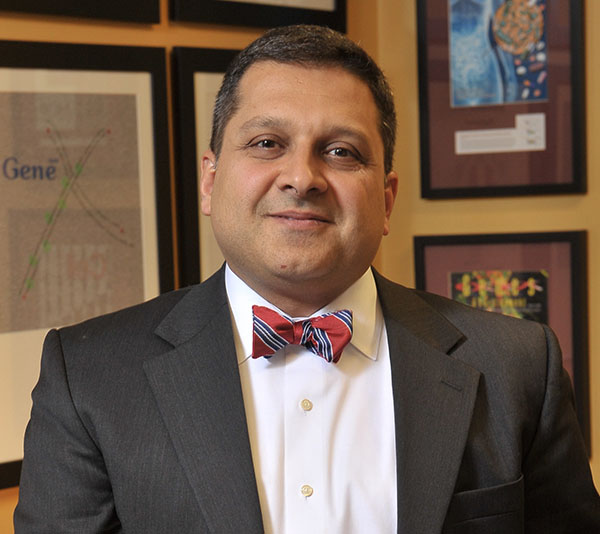
A newly discovered function of an epigenetic regulator, a methyltransferase called Trr, raises the possibility that this regulatory pathway could be used to slow the growth of cancer, according to Ali Shilatifard, PhD, senior author of the study published in Genes and Development and co-leader of the Cancer Epigenetics & Nuclear Dynamics (CEND) program at the Lurie Cancer Center.
In 2020, a new $15 million gift from University trustees and supporters, Louis A. Simpson and Kimberly K. Querrey, established the Simpson Querrey Institute for Epigenetics at Northwestern University Feinberg School of Medicine. Led by Dr. Shilatifard, the new institute will expand efforts to study the effects of environment on the regulation of gene expression.
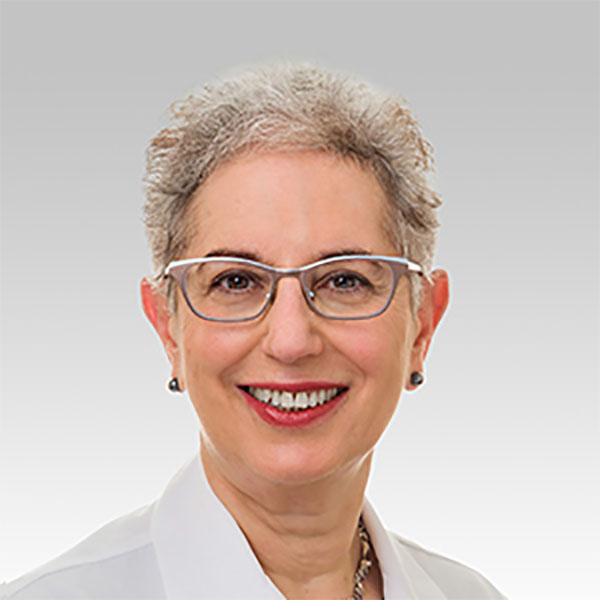
A brief course of immunotherapy resulted in complete and near complete remission in nearly two-thirds of previously untreated patients with classical Hodgkin lymphoma, according to a Lurie Cancer Center clinical trial. Using the drug as a first-line treatment could reduce the number of patients who later require more intensive chemotherapy or consolidation with radiotherapy, according to Jane Winter, MD, senior author of the study published in the journal Blood.
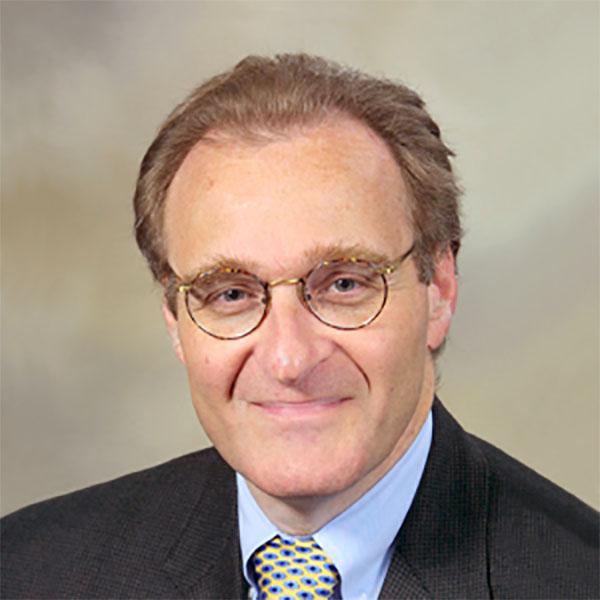
A new immunotherapy treatment that genetically modifies a patient's T-cells into aggressive cancer killers, could be a breakthrough for recurrent B-cell lymphoma, a cancer that has few other treatment options. "In that sense, CAR-T therapy represents a new step forward in the treatment of malignancy," said Leo Gordon, MD, co-author of the study published in The Lancet.
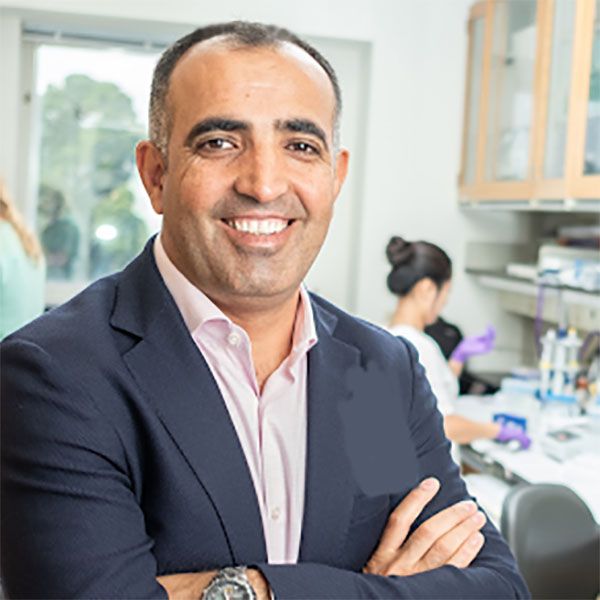
There are currently no targeted treatments for pancreatic ductal adenocarcinoma (PDAC), and chemotherapy comes with a host of side effects, so combining the current standard of care chemotherapy drug with a genetic inhibitor is promising, according to Mazhar Adli, PhD, senior author of the study published in Proceedings of the National Academy of the Sciences (PNAS).
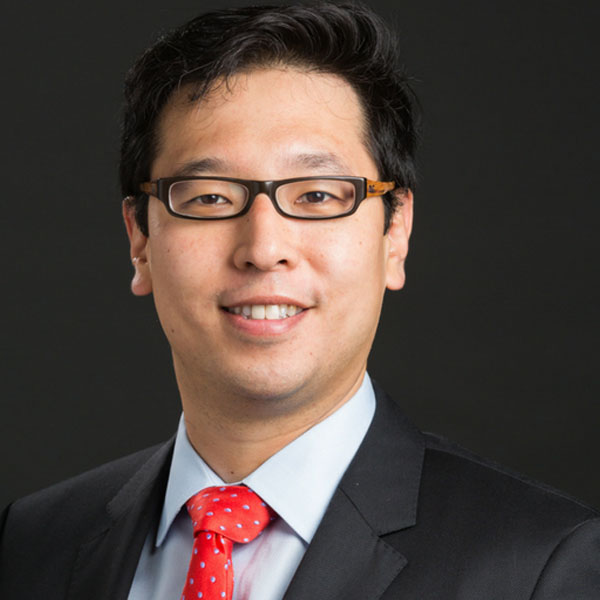
A Lurie Cancer Center study found important differences in rare skin lymphomas stemming from their specific cell of origin and clinical presentations. Investigators used DNA, RNA and T-cell sequencing to provide a framework for differential diagnosis and clinical care, according to Jaehyuk Choi, MD, PhD, co-senior author of the study published in Nature Communications.
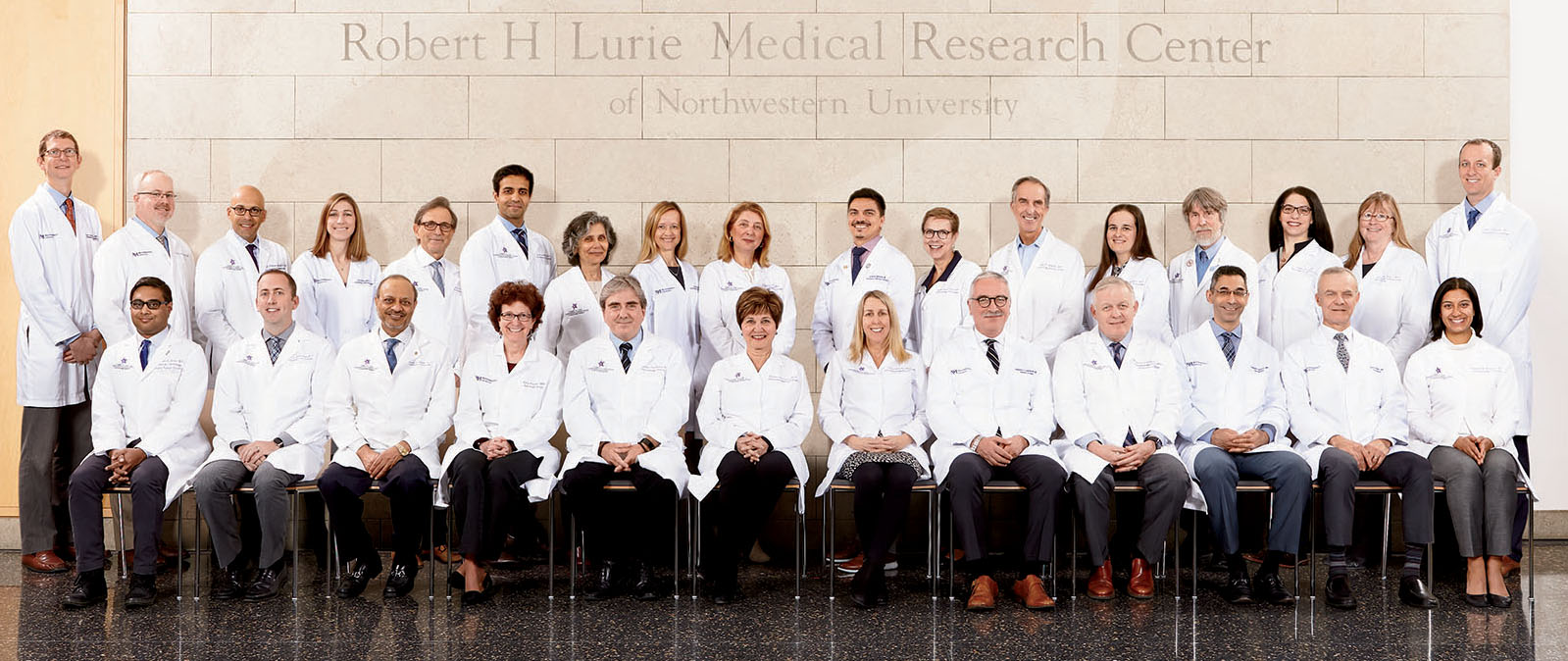
Lurie Cancer Center's faculty is comprised of researchers and clinicians from Northwestern University Feinberg School of Medicine, McCormick School of Engineering and Applied Sciences, Weinberg College of Arts and Sciences, and other academic units. Together they bring their combined knowledge and expertise directly to our patients at Northwestern Memorial Hospital, Ann & Robert H. Lurie Children's Hospital of Chicago, Shirley Ryan AbilityLab, and the Jesse Brown VA Medical Center.
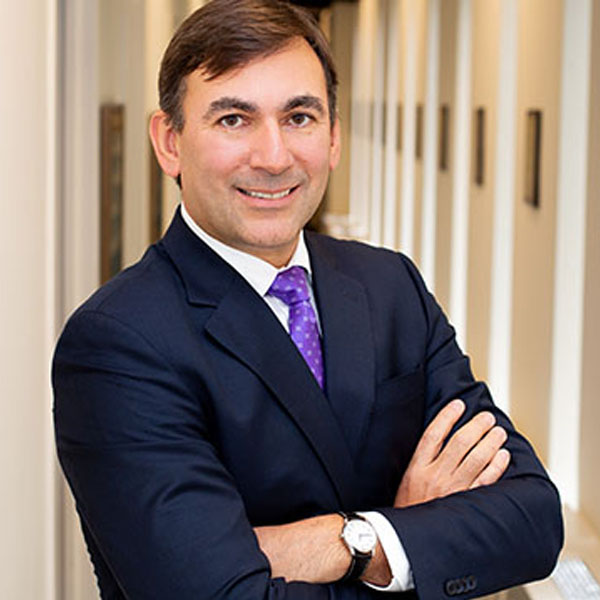
Award-winning scientist, Milan Mrksich, PhD, has been named Northwestern University’s Vice President for Research. He served as associate director for Research Technology and Infrastructure at the Lurie Cancer Center from 2014 to 2019, where he worked to ensure that state-of-the-art instrumentation and techniques are available to our research community.
"The Lurie Cancer Center is a jewel in our research portfolio at Northwestern, and I am grateful for the opportunity to have worked with Dr. Platanias and the leadership team to make our cancer center one of the nation’s strongest," said Mrksich. "I am excited to work with the Lurie Cancer Center in my new role to build on our successes and make Northwestern the destination for patients seeking the most advanced treatments for this terrible disease."
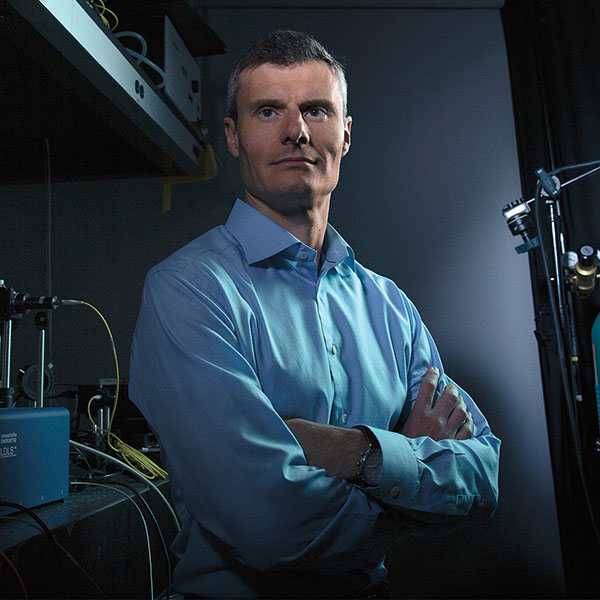
Vadim Backman, PhD, was named associate director for Research Technology and Infrastructure at the Lurie Cancer Center. An internationally renowned expert in biomedical optics, Backman has developed novel imaging technologies that are redefining the power of cancer diagnostics.
As associate director, Backman oversees the infrastructure for our interdisciplinary programs and initiatives, which include 15 Shared Resources that foster basic, clinical and translational research. In addition to this new role, he will continue to serve as leader of our Cancer and Physical Sciences (CAPS) Program.

Jyoti Patel, MD, joined the Lurie Cancer Center as medical director of Thoracic Oncology and assistant director for Clinical Research. She also serves as associate vice-chair for Clinical Research in the Department of Medicine.
An internationally recognized leader in the treatment of patients with lung cancer and other thoracic cancers, Patel uses targeted approaches, immunotherapy and cytotoxic chemotherapy to provide personalized treatment options. She is an active clinical investigator recognized for her expertise in new drug development, as well as being an outstanding clinician, educator, and mentor.
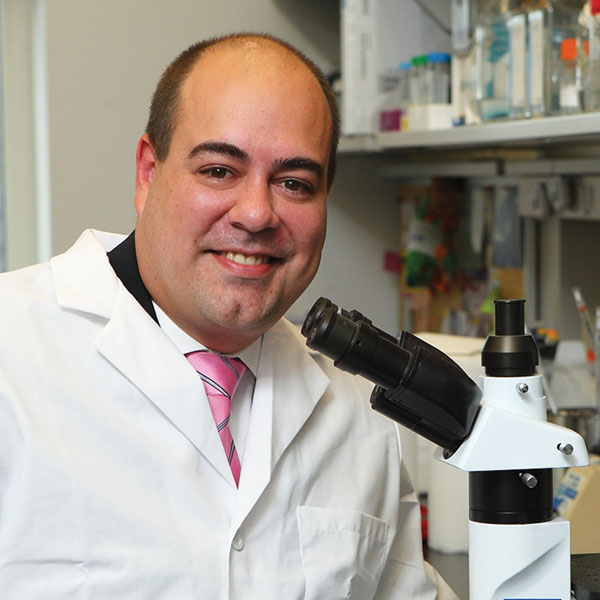
Marcelo Bonini, PhD, was named interim associate director for Education and Training at the Lurie Cancer Center, where he oversees Lurie Cancer Center’s education and training activities across a wide range of disciplines for graduate students, postdoctoral fellows, clinicians and under-represented students.
Bonini joined Northwestern in 2020. His laboratory research focuses on understanding how changes in the electrochemical balance of the nucleus alters gene expression patterns in breast cancer progression and chronic inflammatory disease.

Priya Kumthekar, MD, has been named interim director of the Lurie Cancer Center's Clinical Trials Office (CTO). A leader in the research and treatment of primary brain tumors, she is the principal investigator of several Lurie Cancer Center-initiated clinical trials, including the landmark early-stage trial using novel spherical nucleic acids to target glioblastoma.
Kumthekar also has a specific interest in metastatic disease to the brain from systemic cancers and serves as an executive officer for the Alliance for Clinical Trials in Oncology where she oversees NCI-funded clinical trials in neuro-oncology and gastrointestinal cancers.
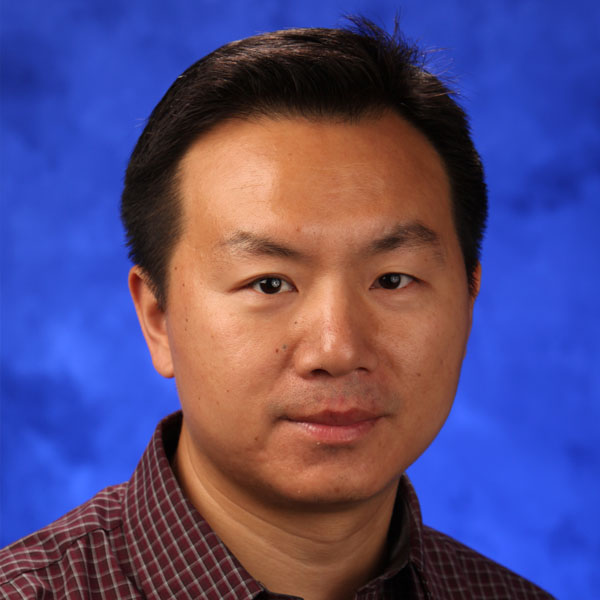
Feng Yue, PhD, an expert in the dynamic field of cancer genomics, is the founding director of the Center for Cancer Genomics of the Lurie Cancer Center. Yue was recruited in a joint effort with the Department of Biochemistry and Molecular Genetics, the Simpson Querrey Center for Epigenetics, and the Center for Genetic Medicine.
By collaborating within and across Northwestern’s scientific community, Yue aims to leverage the power of genomics to identify new therapeutic targets and guide individualized cancer care with greater precision.

Brian Hitsman, PhD, was named co-leader of the Cancer Prevention Program at the Lurie Cancer Center. The program promotes the reduction of cancer risk through the discovery of novel biomarkers, risk stratification approaches, as well as targeted strategies and devices.
A health psychologist with nearly 25 years of experience in the treatment of tobacco use and dependence, Hitman’s skills will complement the expertise of Cancer Prevention Program co-leaders, Seema Khan, MD, and Bonnie Spring, PhD.
Women make up over half of our medical students and trainees, lead over $200 million in funded research, and represent over 100 senior leaders at Feinberg. Learn more about the trailblazers of the past and the women in senior leadership roles serving as chairs, chiefs, and program leaders today. Lurie Cancer Center faculty featured include:
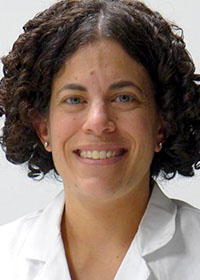




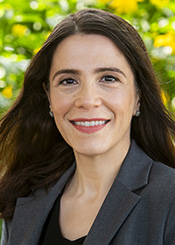


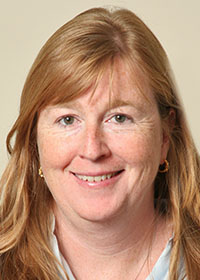

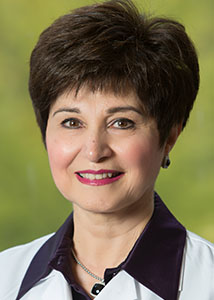
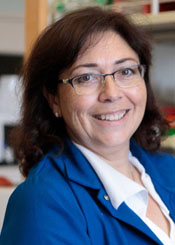

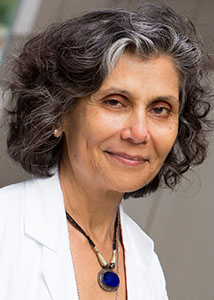





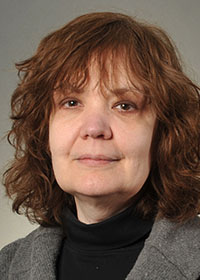
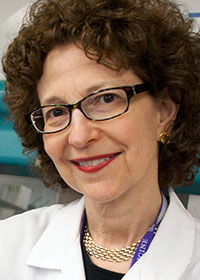
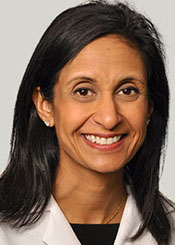





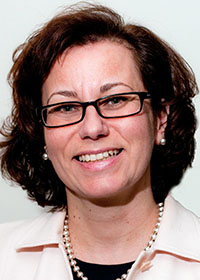


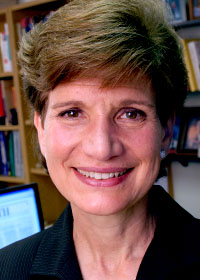
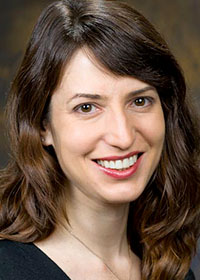
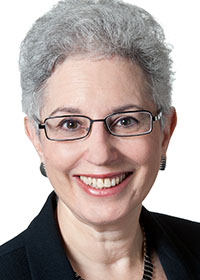
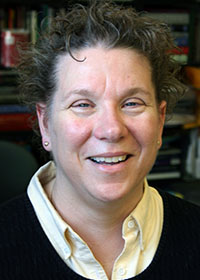


Lurie Cancer Center's culture of collaboration and team-based approach continues to attract an expanding team of exceptional physician-scientists, including the following faculty members who were recruited and joined Lurie Cancer Center:
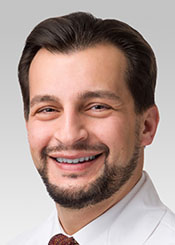
Mohamed Abazeed, MD, PhD
Radiation Oncology
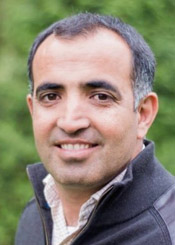
Mazhar Adli, PhD
Obstetrics and Gynecology (Reproductive Science in Medicine)
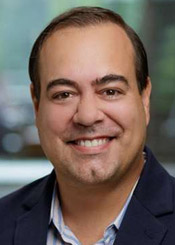
Marcelo Bonini, PhD
Medicine (Hematology and Oncology)
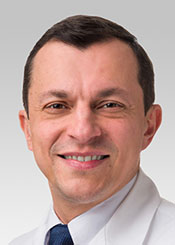
Yanis Boumber, MD
Medicine (Hematology and Oncology)
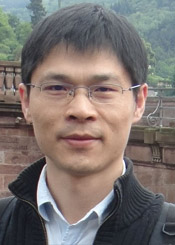
Peiwen Chen, PhD
Neurological Surgery

Rebecca Obeng, MD, PhD
Pathology (Gastrointestinal Pathology)
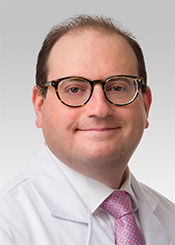
Seth Pollack, MD
Medicine (Hematology and Oncology)

Barbara Stranger, PhD
Pharmacology
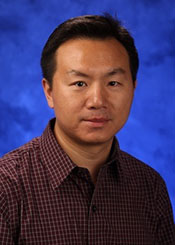
Feng Yue, PhD
Biochemistry and Molecular Genetics and Pathology
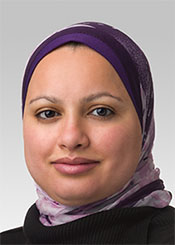
Yasmin Abaza, MD
Medicine (Hematology and Oncology)

Jessica Foglesong, MD
Pediatrics (Hematology, Oncology, and Stem Cell Transplantation)
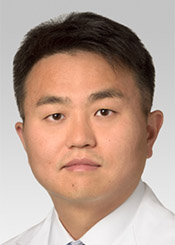
Samuel Kim, MD
Surgery (Thoracic Surgery) and Medicine (Pulmonary and Critical Care)

Loretta Li, MD
Pediatrics (Hematology, Oncology, and Stem Cell Transplantation)
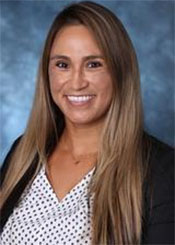
Ashley Plant, MD
Pediatrics (Hematology, Oncology, and Stem Cell Transplantation)
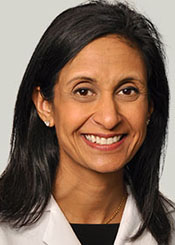
Jyoti Patel, MD
Medicine (Hematology and Oncology)
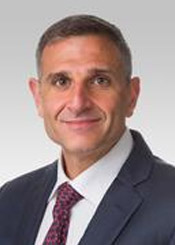
Ashley Ross, MD
Urology
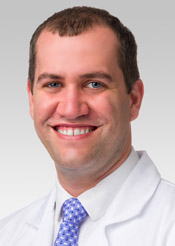
Dario Roque, MD
Obstetrics and Gynecology (Gynecologic Oncology)
Between 2017 and 2020, Lurie Cancer Center investigators led or played a major role in clinical trials that resulted in FDA approval of 18 new cancer therapies, including the following high-impact approvals last year:

Watch: Dr. Hussain on the role of PARP inhibitors
Targeted Oncology

Watch: Dr. Patel on major progress made in fight against lung cancer
NBC5 Chicago
Lurie Cancer Center congratulates our highly innovative thought leaders who are transforming cancer research and treatment around the world. Learn more about some of their prestigious honors and leadership roles, including:
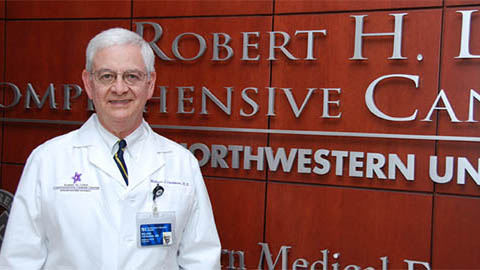
Ramon Guiteras Award for outstanding leadership, American Urological Association
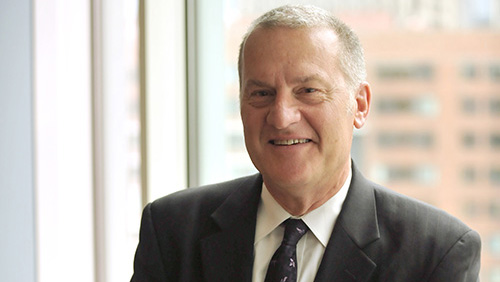
Fellow, American Society of Clinical Oncology (ASCO)
Member, National Academy of Medicine
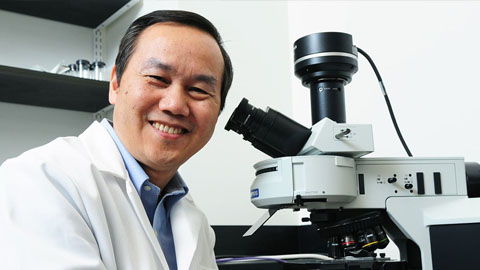
Fellow, American Association for the Advancement of Science (AAAS)
Six members of the Lurie Cancer Center are among the "world's most influential scientific minds," according to the annual list released by Clarivate Analytics. "Breakthrough science at Northwestern exerts a huge impact, creating the knowledge and approaches that change research disciplines," said Lurie Cancer Center member, Milan Mrksich, PhD, Vice President for Research at Northwestern University.
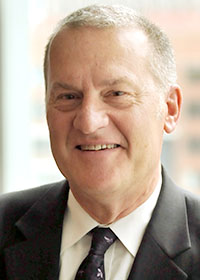
David Cella, PhD

Navdeep Chandel, PhD
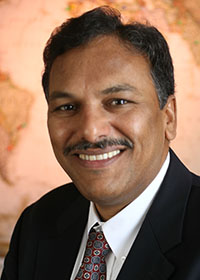
Vinayak Dravid, PhD

Mark Hersam, PhD
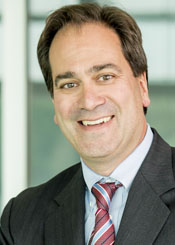
Chad Mirkin, PhD
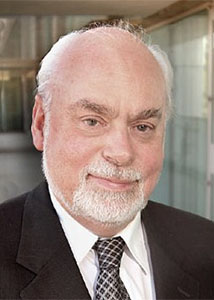
Sir Fraser Stoddart, PhD
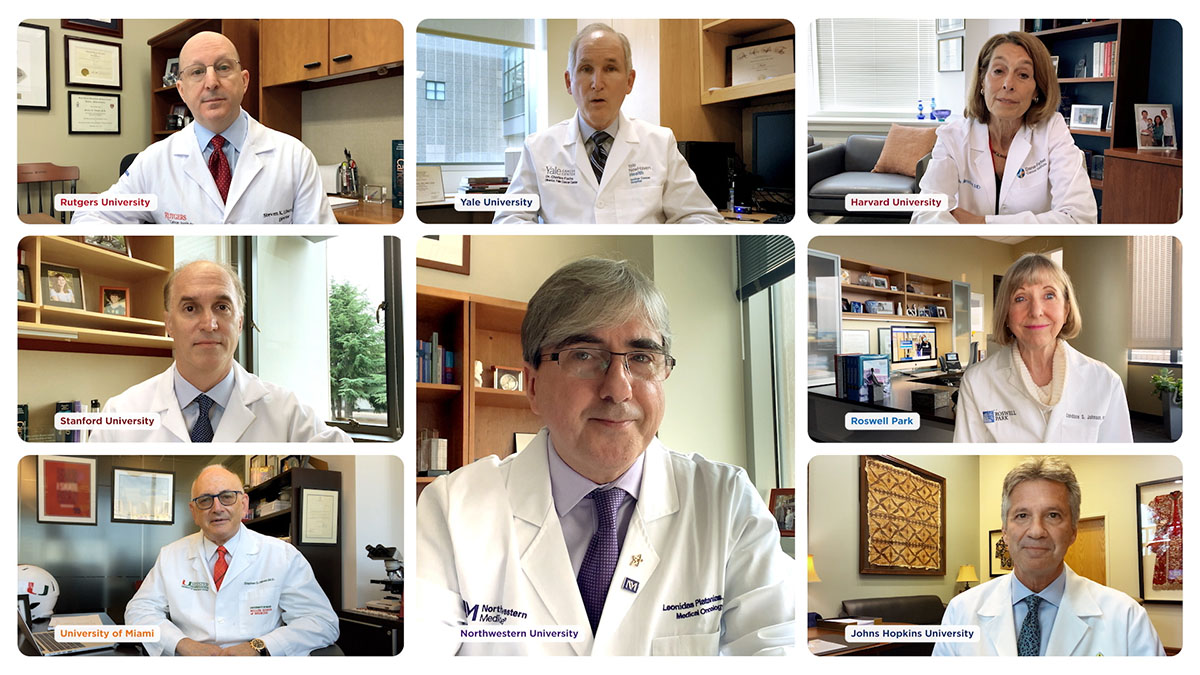
Collaborating across disciplines, Lurie Cancer Center's physicians and scientists combine scientific discovery and medical innovation with individualized compassionate care to provide the best possible treatment and support. Designated as one of only 51 Comprehensive Cancer Centers in the nation by the National Cancer Institute, and the only one in Illinois to receive an "Exceptional" rating, we are leading efforts to turn findings in the labs into better outcomes.
Our patients at Northwestern Medicine benefit from world-class resources, unrivaled expertise, and access to hundreds of clinical trials offering leading-edge treatments for nearly every type of cancer. "We need to remember that clinical research is not just research — it is the best clinical care for a cancer patient," says Leonidas Platanias, MD, PhD, director of the Lurie Cancer Center.

The Lurie Cancer Center at Northwestern Memorial Hospital is dedicated to caring for each patient from diagnosis through treatment to rehabilitation. Our specialists provide the full spectrum of medical, surgical and radiation oncology treatment options, as well as exciting new immunotherapy approaches (including CAR T-cell therapy), precision medicine, interventional radiology, the region's largest stem cell transplant program, and advanced technologies to improved diagnosis and treatment.
Outpatient clinics in Northwestern Memorial Hospital's Galter Pavilion, Olson Pavilion, Arkes Pavilion, and the Maggie Daley Center for Women's Cancer Care in Prentice Women's Hospital, are supported by on-site pharmacy and lab services, as well as a comprehensive Supportive Oncology Program. A wide range of specialized programs and services support state-of-the-art cancer treatment and overall well-being.
In 2019, the Lurie Cancer Center at Northwestern Memorial Hospital provided exceptional care for nearly 17,000 new patients. That number decreased in 2020, as we focused on providing cancer screening and care to patients with immediate needs, while also minimizing the risk of exposure to COVID-19 for our patients and staff.
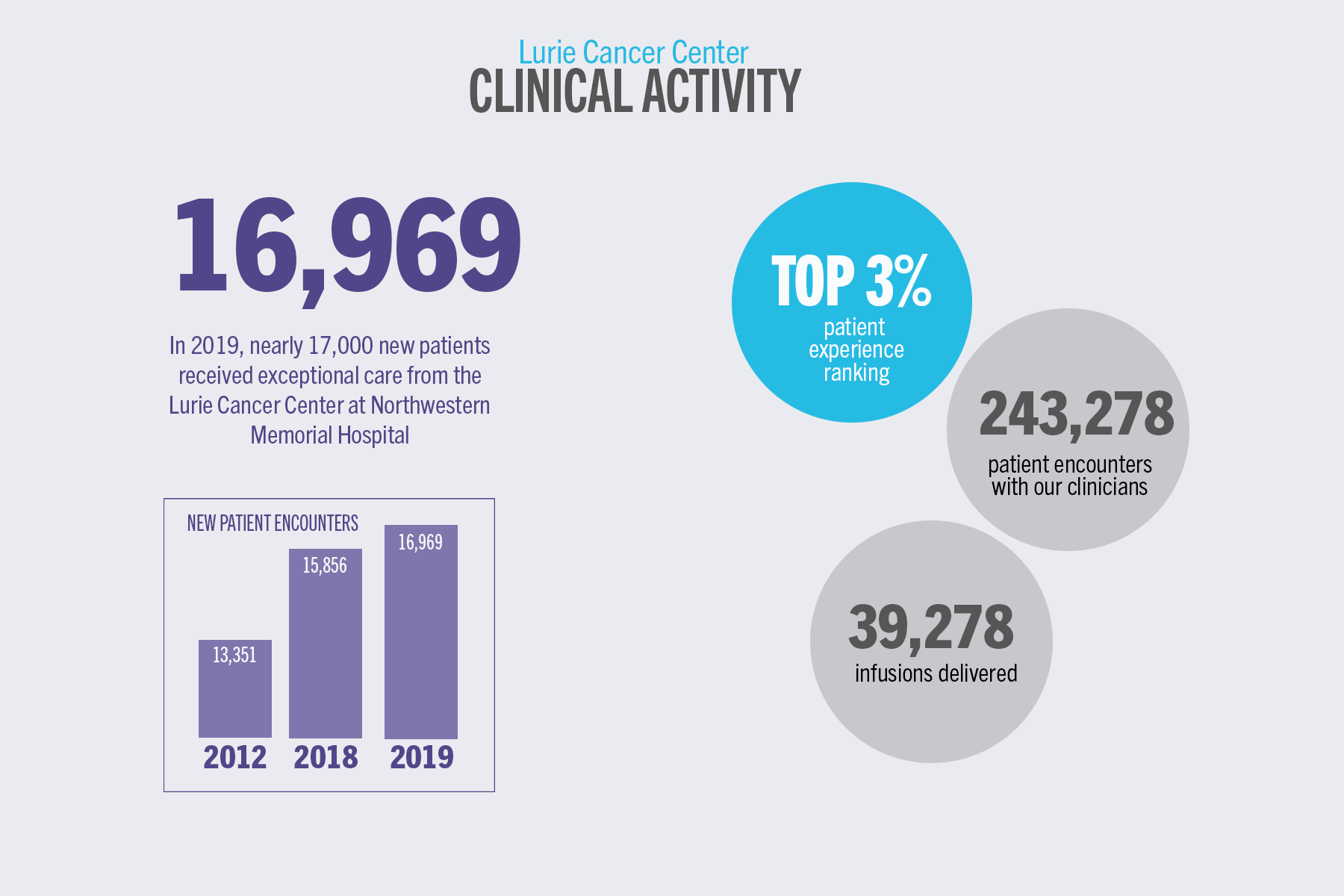
Cancer care at Northwestern Memorial Hospital was once again recognized among the nation's best. Lurie Cancer Center's clinical home was ranked #8 in the nation by U.S. News & World Report in its 2020-2021 list of Best Hospitals for Cancer and is also recognized as the top cancer program in Illinois and Chicago. Northwestern Memorial retained its position as the #1 hospital in Illinois and Chicago, and is also recognized among the top hospitals in the country, ranking #10 on the prestigious Best Hospitals Honor Roll.
Our pediatric partner, Ann & Robert H. Lurie Children's Hospital of Chicago, continues to be the top children's hospital in Illinois and is ranked among the top children's hospitals in the nation by U.S. News.
In addition, the Shirley Ryan AbilityLab (previously known as the Rehabilitation Institute of Chicago) continues to be recognized as the national leader in physical medicine and rehabilitation, topping the U.S. News list for 30 consecutive years. Our proximity and affiliation with the AbilityLab enable us to coordinate world-class cancer treatment and rehabilitation for our patients.
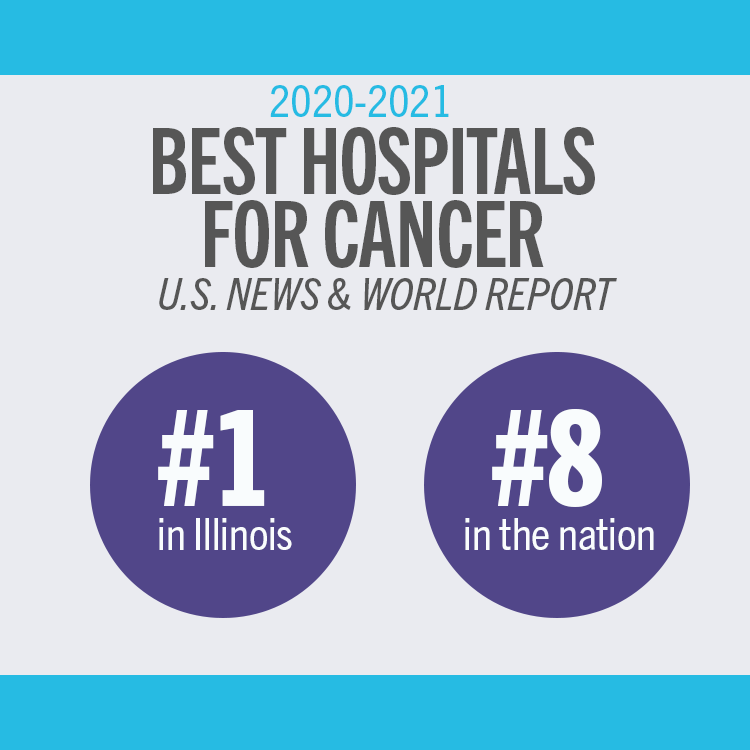
 Patients with Von Hippel-Lindau (VHL) Disease have an increased risk of developing certain tumors. A new VHL Clinic at Northwestern Memorial Hospital is bringing together a team of specialists dedicated to the evaluation and management of the rare, hereditary syndrome.
Patients with Von Hippel-Lindau (VHL) Disease have an increased risk of developing certain tumors. A new VHL Clinic at Northwestern Memorial Hospital is bringing together a team of specialists dedicated to the evaluation and management of the rare, hereditary syndrome.
Recognized by the VHL Family Alliance for providing outstanding coordinated care, the clinic draws on expert treatment through the Lurie Cancer Center, as well as genetic counseling and genetic testing for VHL patients and families.

To help more patients with cancer achieve the best possible outcomes, Northwestern Medicine entered a collaboration with AccessHope to optimize care for patients with complex cancers, regardless of their location. Through an employer health care benefit, employees of AccessHope clients and their local treating oncologist can benefit from the expertise of Lurie Cancer Center specialists for review of diagnosis, treatment plan, and precision medicine opportunities, as well as clinical trial information and support services.
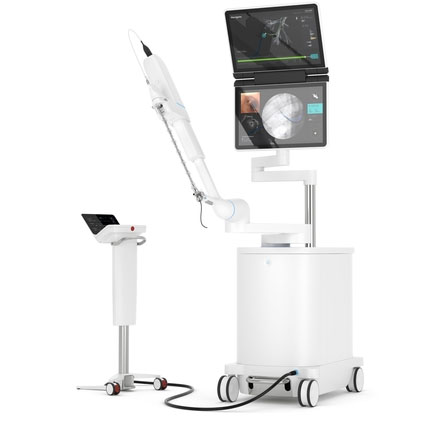
The Northwestern Medicine pulmonary program is the first in Illinois to offer Ion, a novel robotic-assisted bronchoscopy system, at Northwestern Memorial Hospital. The minimally invasive tool helps our specialists diagnose lung cancer earlier and with more precision than standard biopsy technologies, enabling them to provide the most effective treatment options, sooner.
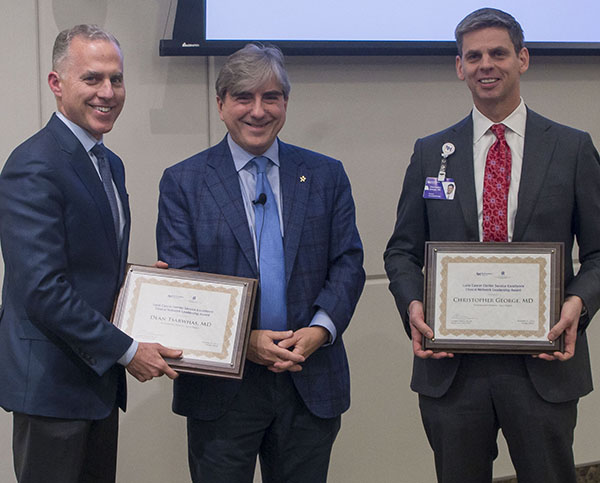
Oncology continues to be a key priority for Northwestern Medicine's new Office of Clinical Integration. Led by Patrick M. McCarthy, MD, and Jennifer Bloomquist, the team is working with Leonidas Platanias, MD, PhD, and other Lurie Cancer Center leadership to accelerate ongoing efforts to integrate clinical cancer care, effectively and efficiently, across the health system. Our shared goal remains the same — to provide patients with access to the high level of coordinated, state-of-the-art care they have come to expect from the top-rated cancer program in Illinois.
The medical leaders of cancer services in the different regions, Dean Tsarwhas, MD; Christopher George, MD; and Alan Wan, DO; are an integral part of guiding the process. Prior to 2020, we initiated efforts to integrate breast, gastrointestinal, genitourinary, lung, and neuro-oncology teams across Northwestern Medicine. Once completed, this will allow us to extend care to more than 70% of the patients seen outside the Lurie Cancer Center at Northwestern Memorial Hospital in downtown Chicago. Furthermore, we continue to focus on bringing novel cancer therapies to our patients, closer to home.
The Clinical Network has already expanded successfully to the North Region, and efforts are ongoing to enhance integration in the West and Northwest Regions. We are excited to welcome Palos Health to Northwestern Medicine this year, providing a new opportunity for collaborative cancer care in the South Region.
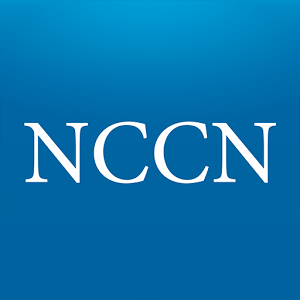
Lurie Cancer Center is a founding member, and the only member institution in Illinois, of the National Comprehensive Cancer Network (NCCN), an alliance of 30 leading cancer centers dedicated to defining and advancing high-quality, effective and accessible cancer care so patients can live better lives.
Our experts help write the NCCN Clinical Practice Guidelines, widely recognized as the standard for evidence-based treatment.
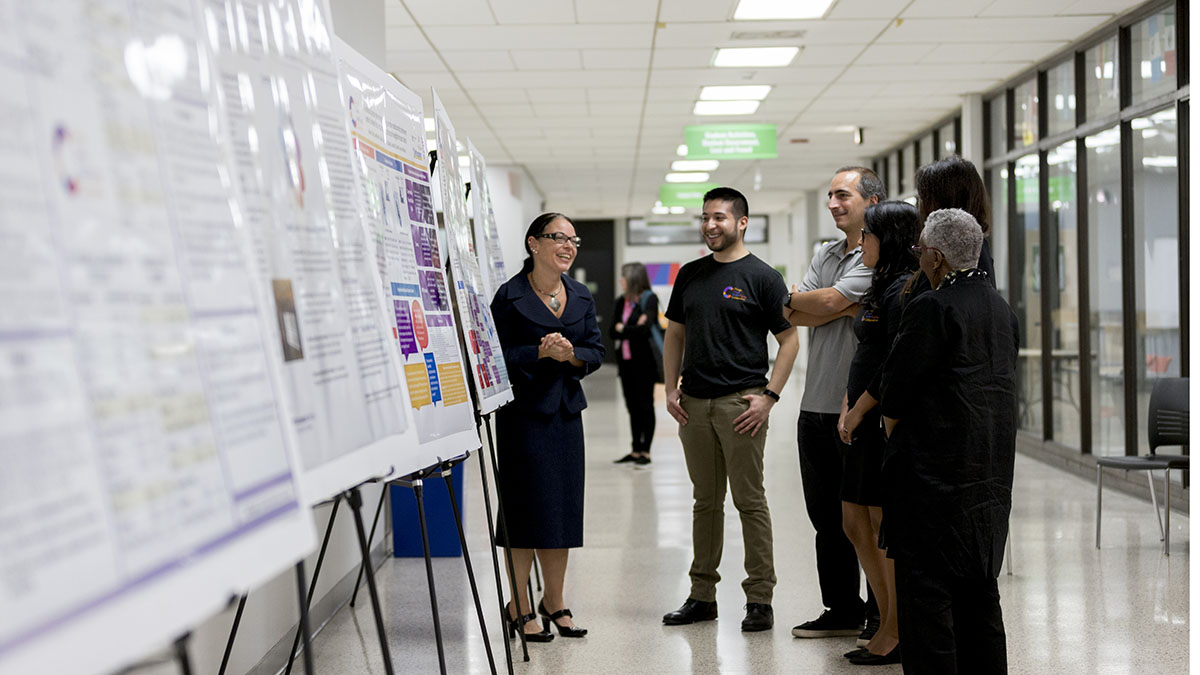
Together with our community partners and expanding networks, Lurie Cancer Center is working to make a positive difference in the communities we serve. We are committed to reducing the burden of cancer by ensuring that all patients have access to high-quality cancer information, prevention, screening and treatment.
Led by Associate Director, Alexis Thompson, MD, and Administrative Director, Tarneka Manning, MEd, Lurie Cancer Center's Office of Equity & Minority Health (OEMH) is vital to our efforts to overcome barriers to cancer health equity and improve outcomes in traditionally underserved neighborhoods and beyond.
Lurie Cancer Center serves a large and diverse catchment area, with patients coming from all nine counties in the Chicago Metropolitan Area. The OEMH uses multiple data sources to focus on the areas of greatest need within our patient population. This knowledge guides our approaches to advocacy and policy development, access to care, and participation in research and clinical trials.
Working together with new and existing organizations, our community partnerships and programs aim to identify and address barriers to cancer health equity and improve outcomes.

The NCI has awarded a $17.7 million grant renewal to the Chicago Cancer Health Equity Collaborative (ChicagoCHEC). The grant will help three Chicago universities enhance their partnerships in many of the city's underserved neighborhoods, and strengthen their efforts to foster meaningful cancer research, education, training and outreach.
Established to advance cancer health equity in the city of Chicago, ChicagoCHEC brings together the synergistic strengths of the NCI–designated Lurie Cancer Center with two federally designated Hispanic-Serving Institutions, the University of Illinois at Chicago and Northeastern Illinois University.
Seeing her own family members treated unfairly in health care settings gave Melissa Simon, MD, the resolve to become a doctor and change health care from the inside. Co-leader of our Cancer Control and Survivorship Program, Simon is the director of the Center for Health Equity Transformation and a Principal Investigator of ChicagoCHEC.
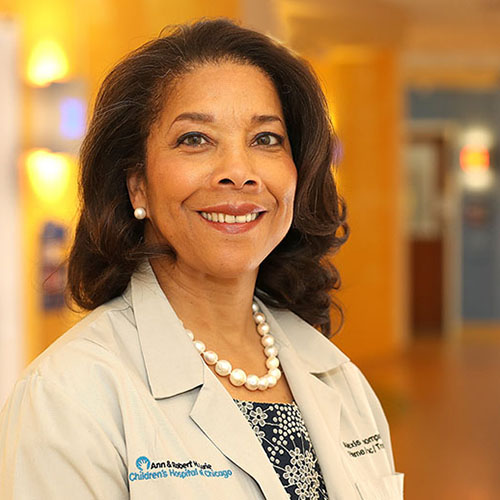
"We want to make sure we're bridging the gaps for the needs of the larger community." Alexis Thompson, MD, associate director for Equity and Minority Health at the Lurie Cancer Center, discussed our partnership with Apostolic Faith Church to distribute food and valuable medical information in Chicago's Bronzeville neighborhood.
2020 was a year unlike any other, but our dedication to empowering people through education and support remained unchanged. A wide range of interactive programs were offered online throughout the year, providing opportunities for cancer patients to learn, connect, and make informed decisions about their care.

Virtual programs and events included:
Lurie Cancer Center provides a variety of educational opportunities to advance professional development and training. In response to COVID-19, they were adapted quickly and effectively to virtual offerings. In addition, new programs were included to address the latest COVID-19 research and response efforts.
In 2020, nearly 160 distinguished speakers from other academic institutions and more than 150 thought leaders from across Northwestern exchanged scientific knowledge and expert perspectives on innovations in cancer research and treatment.
Educational opportunities included:
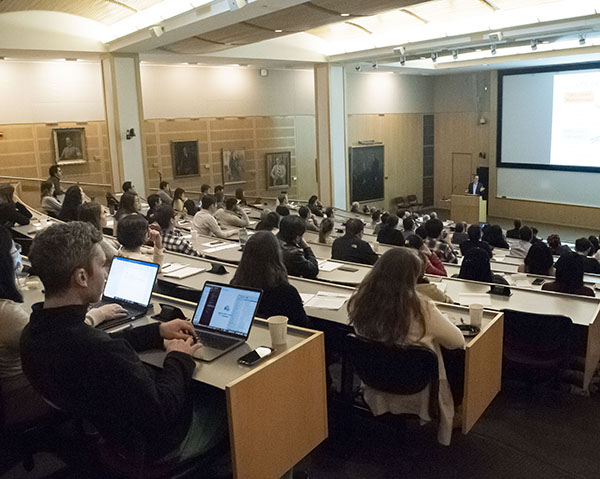

Our Supportive Oncology Program provides emotional and practical support for Lurie Cancer Center’s patients and families coping with the challenges of diagnosis, treatment and recovery. A multidisciplinary team comprised of oncology social workers, psychologists, dietitians, a fertility preservation navigator, palliative care clinicians, an adolescent and young adult (AYA) cancer navigator, and tobacco treatment specialists is dedicated to listening and responding to patient concerns, promoting well-being, and treating each individual with respect and compassion.
Our Cancer Survivorship Programs help patients transition to life after cancer with a wide range of services, including treatment summaries, care plans that include steps for follow-up care, and tools to manage the physical and emotional challenges. An evidence-based approach to symptom monitoring was introduced this year to help connect patients with personalized services and supportive care.
Disease-specific survivorship clinics within the Cancer Survivorship Institute include the Lynn Sage Breast Cancer Survivorship Program, as well as Lurie Cancer Center’s Adolescent & Young Adult Cancer Program and the STAR Program (Survivors Taking Action and Responsibility) for adult survivors of childhood cancer.
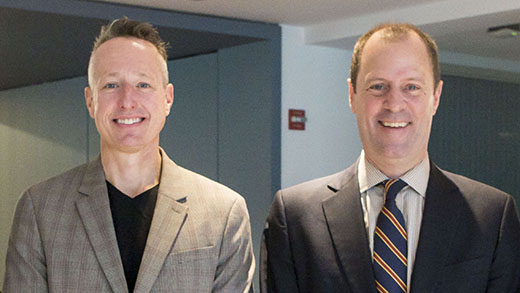
Even after a cancer diagnosis, quitting smoking can significantly improve a patient's response to treatment and lower the risk of cancer returning or developing a second cancer. Now, we can help. As part of the NCI Cancer Moonshot program, Lurie Cancer Center was awarded a grant to integrate evidence-based treatment services into the comprehensive care of our patients. Led by Brian Hitsman, PhD, and Timothy Pearman, PhD, the program's multidisciplinary team offer individualized medical support, tools and strategies for success.
 On Sunday, June 7, the 27th Annual Cancer Survivors’ Celebration Walk & 5K was also our first virtual celebration. Although we missed gathering in person on National Cancer Survivors Day, it was exciting to share the experience virtually with cancer survivors and supporters, friends and families throughout the city and across the country!
Thanks to the commitment of nearly 1,200 participants and 125 teams in 33 states, we were able to honor cancer survivors, celebrate milestones, and raise more than $188,000 to advance lifesaving research and treatment.
On Sunday, June 7, the 27th Annual Cancer Survivors’ Celebration Walk & 5K was also our first virtual celebration. Although we missed gathering in person on National Cancer Survivors Day, it was exciting to share the experience virtually with cancer survivors and supporters, friends and families throughout the city and across the country!
Thanks to the commitment of nearly 1,200 participants and 125 teams in 33 states, we were able to honor cancer survivors, celebrate milestones, and raise more than $188,000 to advance lifesaving research and treatment.
No matter where or when they chose to be active on National Cancer Survivors Day, our Virtual Program provided participants with signs, music, videos, and all the resources for a memorable celebration. Our virtual Dedication Wall brought everyone together, with photos and messages of love, support and hope.
The event marked an important milestone for 15-year-old Charlie and his family. For months they'd been planning to celebrate Charlie’s 15th "cancerversary" as a retinoblastoma survivor at their 15th Cancer Survivors’ Celebration Walk & 5K. "It’s the one day I look forward to every summer," says Charlie’s father. "It shuts off all the noise and helps me focus on what really matters. It is truly my favorite day of the year. Nothing but LOVE!" Read more and view their celebration
We hope to celebrate with you Sunday, June 6, 2021 at our 28th Annual Cancer Survivors' Celebration Walk & 5K!
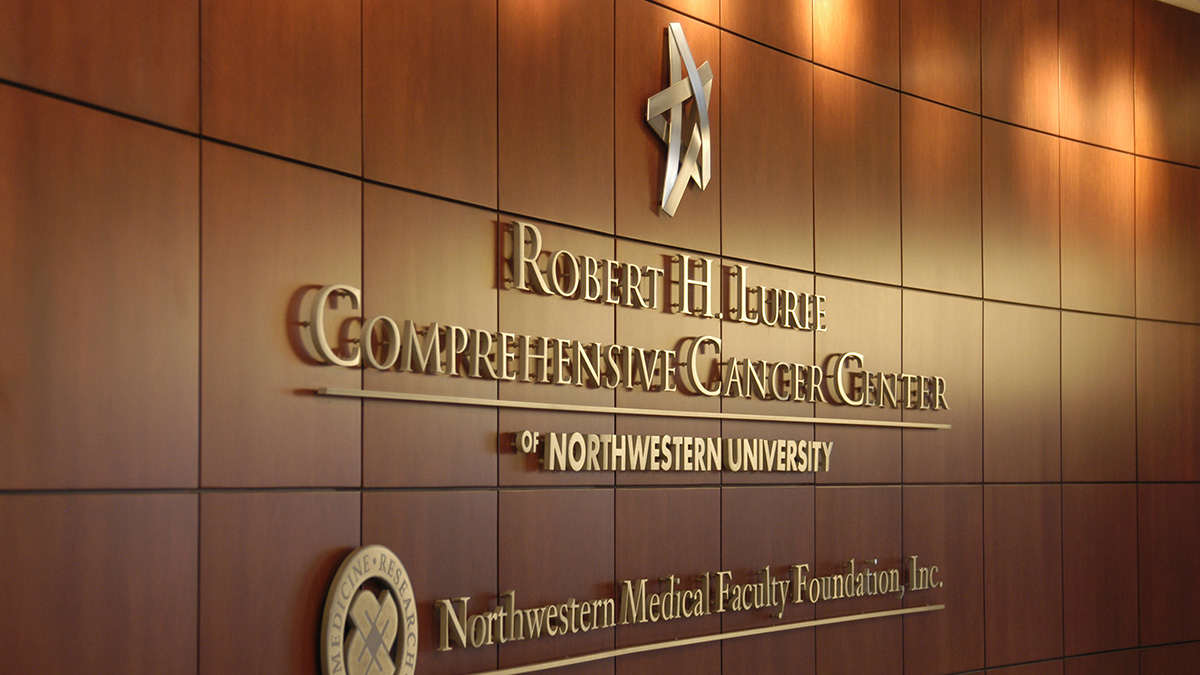
In 1991, the Robert H. Lurie Comprehensive Cancer Center of Northwestern University was dedicated through a gift of endowment from Ann and Robert H. Lurie. We proudly commemorate and recognize this important date in Lurie Cancer Center's history by celebrating the 30th anniversary of its naming throughout the year 2021.
These achievements are made possible through the generosity of friends who share our commitment to innovative research and patient-centered care. Every gift is meaningful and brings us closer to the discoveries that save lives. The dedication of our philanthropic partners enables our physicians and scientists to push the boundaries of medical research and change the future of cancer care.

Northwestern’s Cancer Center, founded in 1974, was dedicated in 1991 through an endowment from Ann and Robert H. Lurie. The title was modified in 1997, when the Robert H. Lurie Comprehensive Cancer Center of Northwestern University received the National Cancer Institute’s (NCI) prestigious “Comprehensive” designation, a reflection of our dedication to the highest standards of cancer research, patient care, education and community outreach.
Lurie Cancer Center is a founding member of the National Comprehensive Cancer Network (NCCN), an alliance of 30 of the world's leading cancer centers, devoted to improving the quality and effectiveness of cancer care, and also part of the Big Ten Cancer Research Consortium, a network of academic institutions working together on highly translational clinical trials using the expertise of Big Ten universities.
Through our clinical partnerships with Northwestern Memorial Hospital, Ann & Robert H. Lurie Children’s Hospital of Chicago, Shirley Ryan AbilityLab and the Jesse Brown VA Medical Center, Lurie Cancer Center is uniquely positioned to offer patients leading-edge treatments and exceptional cancer care.
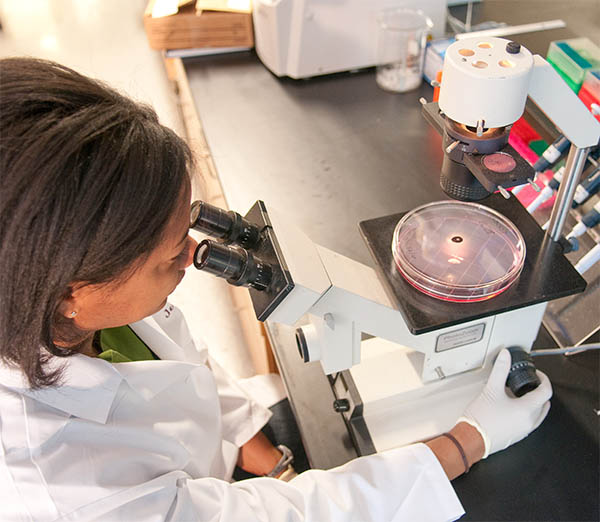
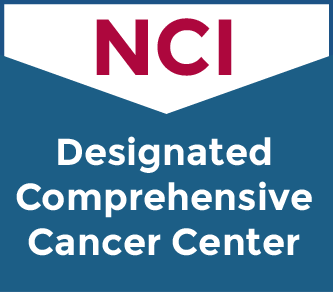

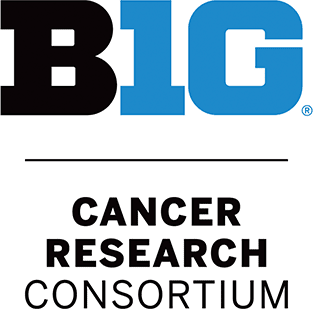
© Robert H. Lurie Comprehensive Cancer Center
of Northwestern University
cancer.northwestern.edu | cancer@northwestern.edu